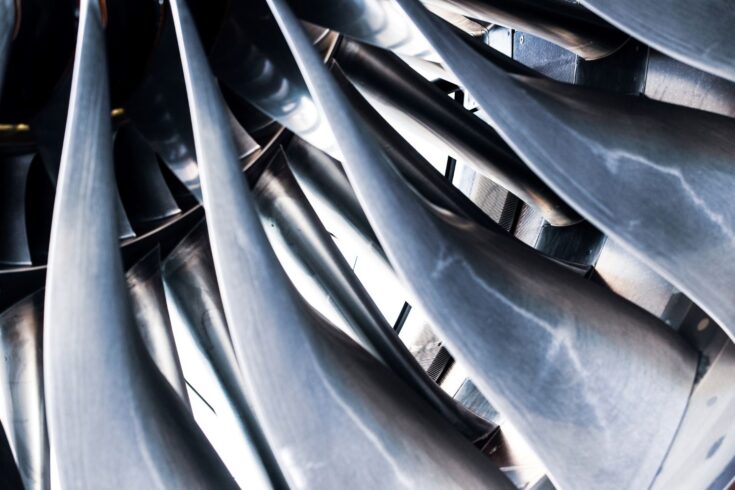Micro Materials, a company based in Wrexham, has led a project to make industrial coatings that can resist erosion at higher temperatures than was possible until now. The coatings will be used in jet engines and concentrated solar power plants, enabling them to operate more efficiently. This could help save aviation fuel and generate more renewable energy, contributing to net zero targets.
About the project partners
Cranfield University and the specialist coatings company Thin Metal Films were partners in the project. The university’s role was to develop a coating for jet engines, while Thin Metal Films produced a coating for concentrated solar power plants. Micro Materials, as a specialist nanomechanical testing company, designed tools to test the coatings.
Dr Ben Beake, the project’s Principal Investigator and Director of Materials Research at Micro Materials, said:
We developed the tools that enabled the other partners to produce damage-tolerant coating systems for these harsh environments. In this case, the environments can cause damage through contact with particles like dust and sand, and intense heat. Materials performance typically drops at these high temperatures, things don’t stay as hard as they should be and they’re more easily damaged.
The results were encouraging
Higher temperature performance was achieved in impact (850⁰C versus 600⁰C previously) and in nano-indentation (tests were conducted successfully at 1,080⁰C versus a previous maximum of 1,000⁰C).
Ben said:
We had hoped to achieve temperatures of 1200⁰C, and we did manage to do that with individual components, breaking previous records. We believe we could still achieve our goal for the whole test instrument in the near future. The project successfully increased the maximum temperatures our instruments can test at, leading to increased sales revenue and additional manufacturing jobs as we’ll need more people to build them.
Potential for reducing greenhouse gas emissions
These results could have significant impact beyond the laboratory. For example, if the new coatings could increase jet engine operating temperatures from 1,270⁰C to 1,300⁰C there could be an 8% saving on fuel, with a corresponding reduction in greenhouse gas emissions.
About Innovate UK’s funding
The project received funding of £390,229 from Innovate UK’s Smart Grants programme. Research and innovation grants can be invaluable to small and medium-sized enterprises (SMEs) who might not have the capacity to support this type of research and development. In this case, the funding helped Micro Materials to not only lead the project but to keep its own staff focused solely on the research.
Ben said:
For a company like ours having this kind of funding is very useful. The project has improved our knowledge about the aerospace and solar markets, and we have developed our technology to better meet their needs. We anticipate follow-on projects to improve coating abrasion resistance in those sectors.
Top image: Credit: Jetlinerimages, iStock, Getty Images Plus via Getty Images

